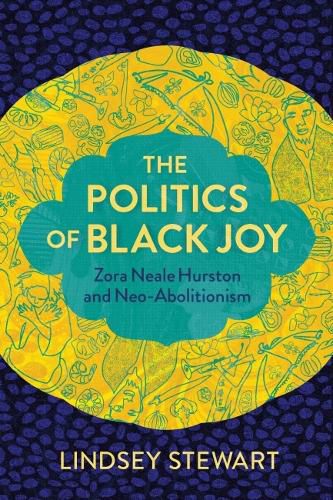Readings Newsletter
Become a Readings Member to make your shopping experience even easier.
Sign in or sign up for free!
You’re not far away from qualifying for FREE standard shipping within Australia
You’ve qualified for FREE standard shipping within Australia
The cart is loading…






During the antebellum period, slave owners weaponized southern Black joy to argue for enslavement, propagating images of happy darkies. In contrast, abolitionists wielded sorrow by emphasizing racial oppression. Both arguments were so effective that a political uneasiness on the subject still lingers. In The Politics of Black Joy, Lindsey Stewart wades into these uncomfortable waters by analyzing Zora Neale Hurston’s uses of the concept of Black southern joy. Stewart develops Hurston’s contributions to political theory and philosophy of race by introducing the politics of joy as a refusal of neo-abolitionism, a political tradition that reduces southern Black life to tragedy or social death. To develop the politics of joy, Stewart draws upon Zora Neale Hurston’s essays, Beyonce’s Lemonade, and figures across several disciplines including Frederick Douglass, W. E. B. Du Bois, Toni Morrison, Angela Davis, Saidiya Hartman, Imani Perry, Eddie Glaude, and Audra Simpson. The politics of joy offers insights that are crucial for forming needed new paths in our current moment. For those interested in examining popular conceptions of Black political agency at the intersection of geography, gender, class, and Black spirituality, The Politics of Black Joy is essential reading.
$9.00 standard shipping within Australia
FREE standard shipping within Australia for orders over $100.00
Express & International shipping calculated at checkout
During the antebellum period, slave owners weaponized southern Black joy to argue for enslavement, propagating images of happy darkies. In contrast, abolitionists wielded sorrow by emphasizing racial oppression. Both arguments were so effective that a political uneasiness on the subject still lingers. In The Politics of Black Joy, Lindsey Stewart wades into these uncomfortable waters by analyzing Zora Neale Hurston’s uses of the concept of Black southern joy. Stewart develops Hurston’s contributions to political theory and philosophy of race by introducing the politics of joy as a refusal of neo-abolitionism, a political tradition that reduces southern Black life to tragedy or social death. To develop the politics of joy, Stewart draws upon Zora Neale Hurston’s essays, Beyonce’s Lemonade, and figures across several disciplines including Frederick Douglass, W. E. B. Du Bois, Toni Morrison, Angela Davis, Saidiya Hartman, Imani Perry, Eddie Glaude, and Audra Simpson. The politics of joy offers insights that are crucial for forming needed new paths in our current moment. For those interested in examining popular conceptions of Black political agency at the intersection of geography, gender, class, and Black spirituality, The Politics of Black Joy is essential reading.